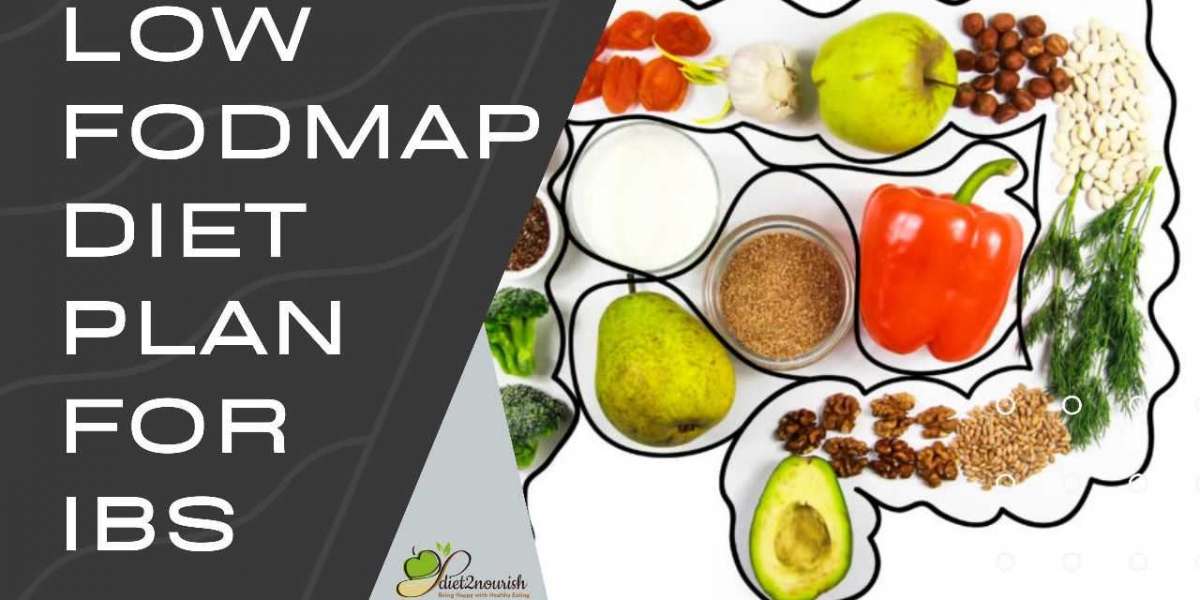IBS is characterized by symptoms such as abdominal pain, bloating, diarrhea, constipation, and changes in bowel habits. While IBS cannot be cured through diet alone, a carefully planned diet can help alleviate symptoms and improve overall quality of life.
Understanding Irritable Bowel Syndrome (IBS): IBS is a chronic functional gastrointestinal disorder that affects the large intestine (colon). It is characterized by symptoms that may include abdominal pain, cramping, bloating, gas, diarrhea, and constipation. IBS does not cause structural damage to the digestive tract but can significantly impact an individual's daily life and overall well-being.
Dietary Guidelines for Managing IBS:
Low-FODMAP Diet: FODMAPs (Fermentable Oligosaccharides, Disaccharides, Monosaccharides, and Polyols) are a group of carbohydrates that can trigger IBS symptoms in some individuals. A low-FODMAP diet involves reducing or eliminating high-FODMAP foods like onions, garlic, wheat, and certain fruits and vegetables for a period, then gradually reintroducing them to identify specific triggers.
Fiber Intake: Dietary fiber plays a crucial role in managing IBS symptoms. However, the type of fiber matters:
- Soluble Fiber: Foods rich in soluble fiber, such as oats, barley, psyllium husk, and certain fruits (e.g., bananas, apples, and berries), can help ease diarrhea and stabilize bowel movements.
- Insoluble Fiber: Foods high in insoluble fiber, like bran, whole wheat, and certain vegetables (e.g., broccoli and cauliflower), may exacerbate symptoms in some IBS patients. Limit or avoid these foods if they worsen your condition.
Small, Frequent Meals: Eating smaller, more frequent meals throughout the day can help prevent overloading the digestive system and minimize discomfort.
Hydration: Stay well-hydrated by drinking plenty of water throughout the day. Proper hydration supports digestive function and overall health.
Foods to Include in an IBS Diet chart
Rice: White rice is generally well-tolerated and can serve as a staple in an IBS-friendly diet.
Oats: Oats are a good source of soluble fiber and can help regulate bowel movements. Opt for plain oats rather than flavored varieties.
Yogurt: Probiotic-rich yogurt can be beneficial for some IBS patients, as it may help support gut health. Choose plain, unsweetened yogurt.
Lentils and Legumes: Lentils, mung beans, and other legumes are excellent sources of plant-based protein and can be included in moderation.
Lean Proteins: Incorporate lean protein sources like skinless poultry, fish, and tofu into your diet.
Low-FODMAP Vegetables: Include low-FODMAP vegetables like zucchini, carrots, spinach, and bell peppers in your meals.
Fruits: Opt for low-FODMAP fruits such as bananas, blueberries, and strawberries. These fruits are less likely to trigger IBS symptoms.
Herbs and Spices: Use herbs like cumin, coriander, fennel, and ginger, which can have soothing effects on the digestive system.
Foods to Avoid in an IBS Diet:
High-FODMAP Foods: Limit or avoid high-FODMAP foods like onions, garlic, wheat, cauliflower, and certain beans.
Spicy Foods: Spicy foods can irritate the gastrointestinal tract and worsen IBS symptoms in some individuals. Reduce or eliminate spicy foods from your diet if they trigger discomfort.
Dairy Products: Some people with IBS are lactose intolerant, which can exacerbate symptoms. Experiment with lactose-free dairy products or dairy alternatives like almond milk.
Caffeine and Alcohol: Both caffeine and alcohol can stimulate the digestive tract and lead to discomfort. Reduce or eliminate these substances if they worsen your symptoms.
Sample IBS IBS Diet chart
Note: This is a sample diet chart and can be adjusted based on individual preferences and dietary requirements.
Breakfast:
- Plain yogurt with sliced bananas and a drizzle of honey.
- Oatmeal cooked with water and topped with a handful of blueberries.
- A cup of herbal tea (e.g., peppermint or ginger).
Mid-Morning Snack:
- A small bowl of ripe papaya.
- A glass of water or infused water with cucumber slices.
Lunch:
- Rice with lightly spiced spinach (palak) and grilled chicken or tofu.
- A side of cucumber and carrot salad with lemon dressing.
- A glass of buttermilk (chaas) with cumin powder.
Afternoon Snack:
- A handful of roasted peanuts.
- A cup of chamomile tea.
Dinner:
- Khichdi made with rice and mung dal, garnished with cumin seeds and a dollop of ghee (clarified butter).
- Steamed or stir-fried low-FODMAP vegetables like zucchini and bell peppers.
- A glass of freshly squeezed orange juice (if tolerated).
Evening Snack:
- A small bowl of curd rice (yogurt rice) seasoned with curry leaves and ginger.
- A glass of water or herbal tea.
Lifestyle Tips for Managing IBS:
Stress Management: Stress can exacerbate IBS symptoms. Incorporate stress-reduction techniques like meditation, deep breathing exercises, or yoga into your daily routine.
Regular Exercise: Engage in regular physical activity to support digestive health and overall well-being.
Keep a Food Diary: Keep track of the foods you consume and any symptoms you experience. This can help identify trigger foods and make necessary dietary adjustments.
Consult a Healthcare Provider: If you suspect you have IBS or have been diagnosed with the condition, work closely with a healthcare provider, such as a gastroenterologist or registered dietitian, to develop a personalized management plan.
In conclusion, an IBS diet chart should prioritize low-FODMAP, easily digestible foods that reduce the risk of symptom exacerbation. However, it's essential to recognize that IBS can vary widely from person to person, and what works for one individual may not work for another. Consultation with a healthcare provider or registered dietitian is crucial for personalized guidance and dietary management of IBS. By adopting a carefully planned diet and lifestyle changes, individuals with IBS can significantly improve their quality of life and manage their condition effectively.








